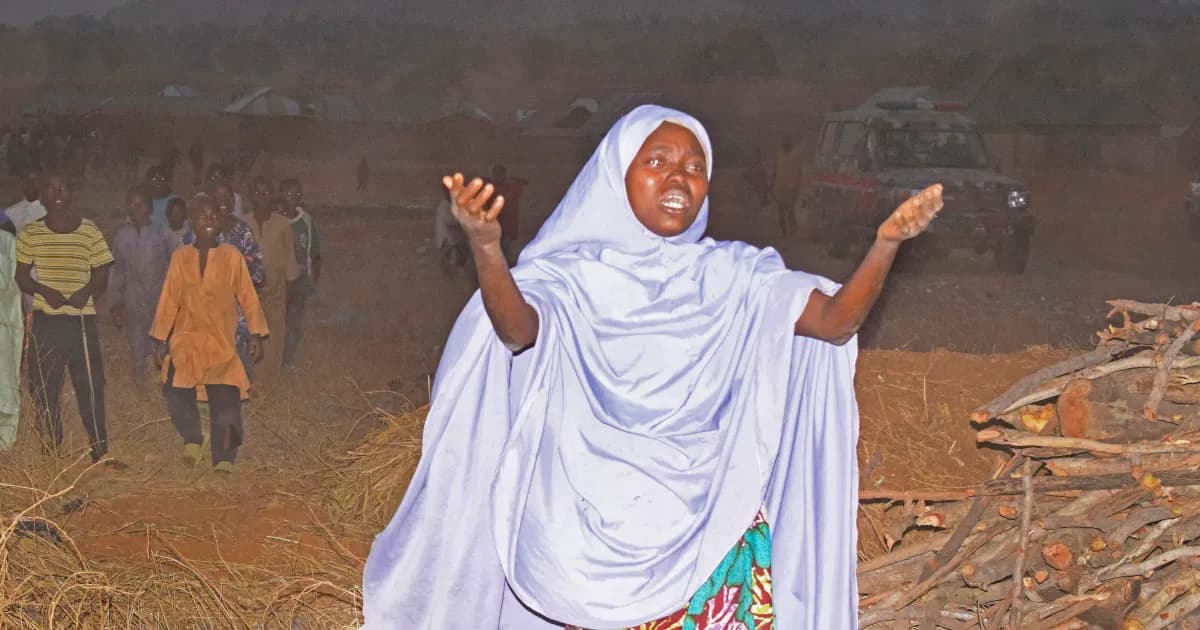We're loading the full news article for you. This includes the article content, images, author information, and related articles.
The kidnapping of 215 students and 12 staff from a Catholic school in Niger State marks the second mass school abduction in Nigeria in a week, raising alarms over the West African nation's escalating insecurity and its potential ripple effects on regional stability.

ABUJA, NIGERIA – Gunmen abducted 215 students and 12 staff members from a Catholic boarding school in central Nigeria early on Friday, November 21, 2025, according to the Christian Association of Nigeria (CAN). The brazen attack on St. Mary's Catholic Primary and Secondary School in Papiri, Niger State, is the second mass school kidnapping in the nation in just five days, deepening a severe security crisis that has prompted President Bola Tinubu to cancel his foreign travel and place the nation on high alert.
The assailants, locally referred to as bandits, stormed the school between 1:00 a.m. and 3:00 a.m. local time (3:00 a.m. and 5:00 a.m. EAT), abducting pupils from their dormitories, as confirmed by the Catholic Diocese of Kontagora and the Niger State Police Command. A security guard at the school was reportedly shot and seriously injured during the raid.
This incident follows the kidnapping of 25 schoolgirls from a government secondary school in the neighbouring Kebbi state on Monday, November 17. In that attack, the school's vice-principal was killed. A separate attack on a church in Kwara state on the same day resulted in two deaths and the abduction of 38 worshippers, for whom kidnappers have reportedly demanded a ransom of 100 million naira (approximately KES 9.5 million) per person.
In response to the escalating violence, President Tinubu postponed his attendance at the G20 summit in South Africa to personally oversee the security situation. The government has deployed military and police tactical units to Niger state to conduct search-and-rescue operations. Information Minister Mohammed Idris announced on Wednesday that the nation's security apparatus was on its highest alert.
However, the Niger State government has criticised St. Mary's School for reopening without official clearance. The Secretary to the State Government, Abubakar Usman, stated that the school had ignored a directive to remain closed due to intelligence reports indicating a heightened threat of attacks in the area, thereby exposing the students and staff to an "avoidable risk." Residents reported that only local community security volunteers were present at the school during the attack, with no official police or military forces on guard.
The recent wave of abductions highlights the persistent failure of authorities to protect citizens, according to human rights organization Amnesty International. The group stated that "whatever security measures put in place by the government of President Bola Tinubu are not working." These attacks are often carried out by armed gangs seeking ransom payments and have become a grimly familiar feature of life in northern and central Nigeria. The insecurity has devastated the region's economy, particularly its agricultural sector, and displaced millions of people.
The UN reports that between January 2022 and December 2023, 1,105 children were abducted in northeast Nigeria alone, marking the highest number since 2014. The proliferation of small arms has exacerbated the crisis, with an estimated 6.1 million weapons in the hands of civilians and non-state actors.
While the immediate crisis is centred in West Africa, the growing instability in Nigeria, Africa's most populous nation and largest economy, carries significant implications for the continent. Escalating insecurity in a regional power like Nigeria could lead to wider instability and displacement, potentially affecting neighbouring countries and, by extension, the broader African security landscape.
For Kenya, a key player in East African security and a close partner to international efforts against extremist groups like al-Shabaab, the deterioration of security in Nigeria serves as a stark reminder of the complex and interconnected security challenges facing the continent. As a nation that has experienced the profound impact of terrorism and regional instability, Kenya has a vested interest in the restoration of order in Nigeria. The crisis underscores the urgent need for robust, continent-wide security cooperation and intelligence sharing to counter the growing threat of armed non-state actors. President William Ruto has recently been a vocal advocate for reforming the UN Security Council to give African nations a permanent voice in addressing global peace and security issues, a call that gains urgency with every such crisis on the continent.
Keep the conversation in one place—threads here stay linked to the story and in the forums.
Sign in to start a discussion
Start a conversation about this story and keep it linked here.
Other hot threads
E-sports and Gaming Community in Kenya
Active 9 months ago
The Role of Technology in Modern Agriculture (AgriTech)
Active 9 months ago
Popular Recreational Activities Across Counties
Active 9 months ago
Investing in Youth Sports Development Programs
Active 9 months ago